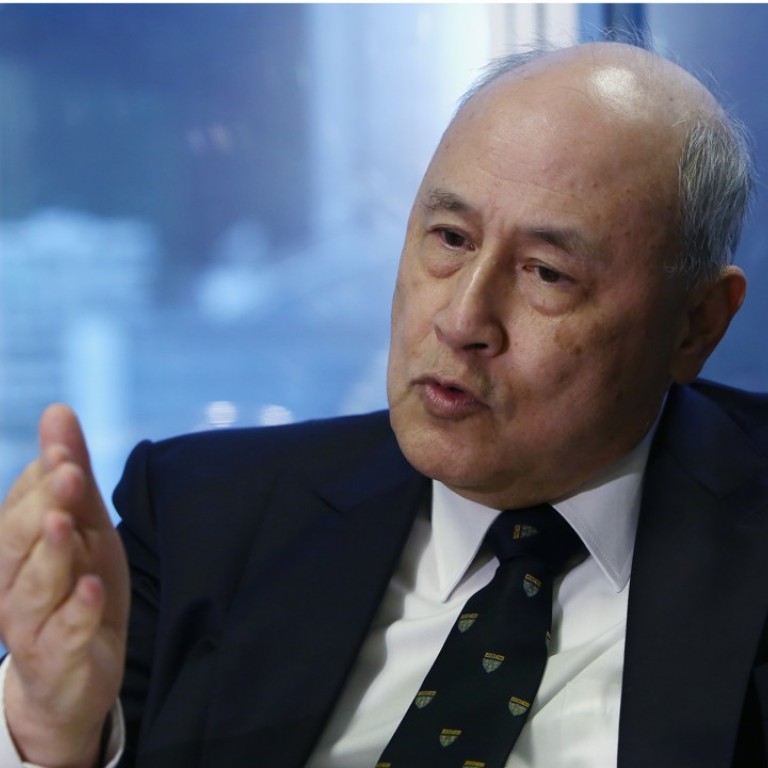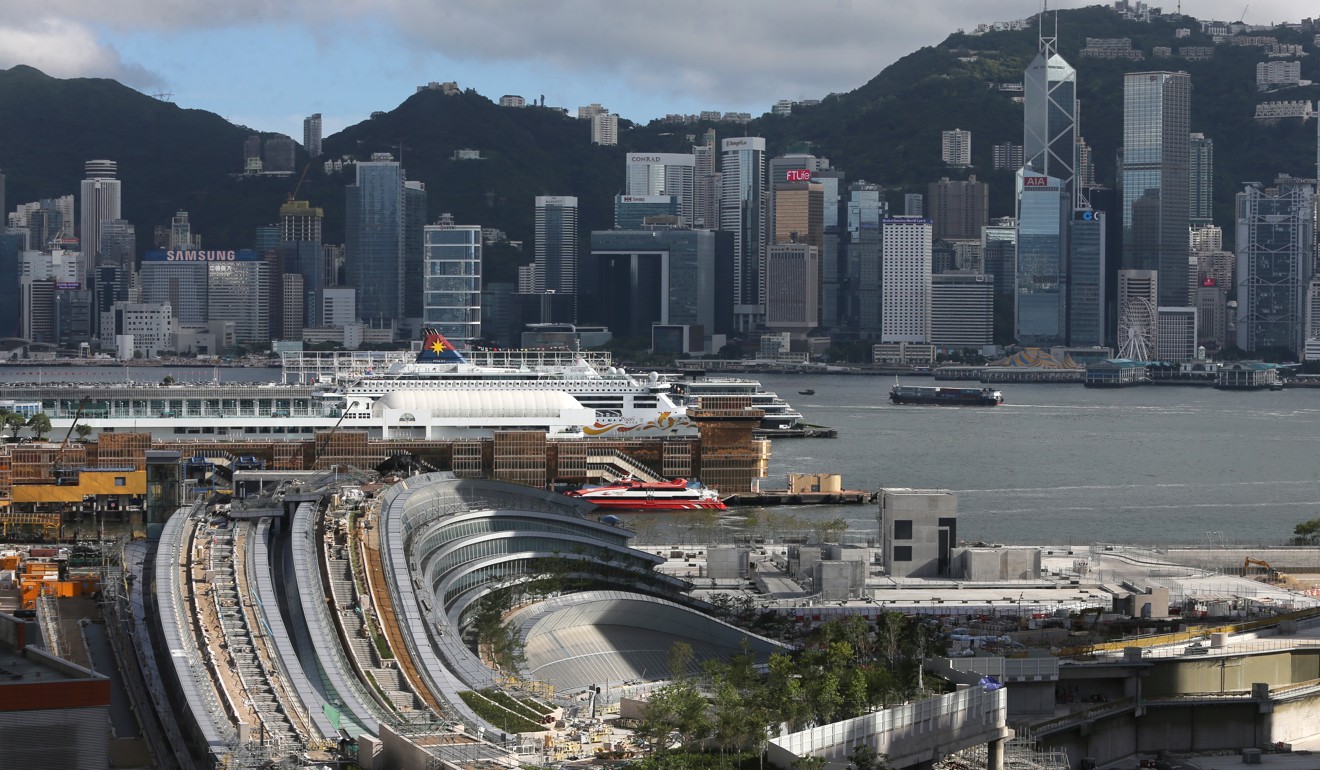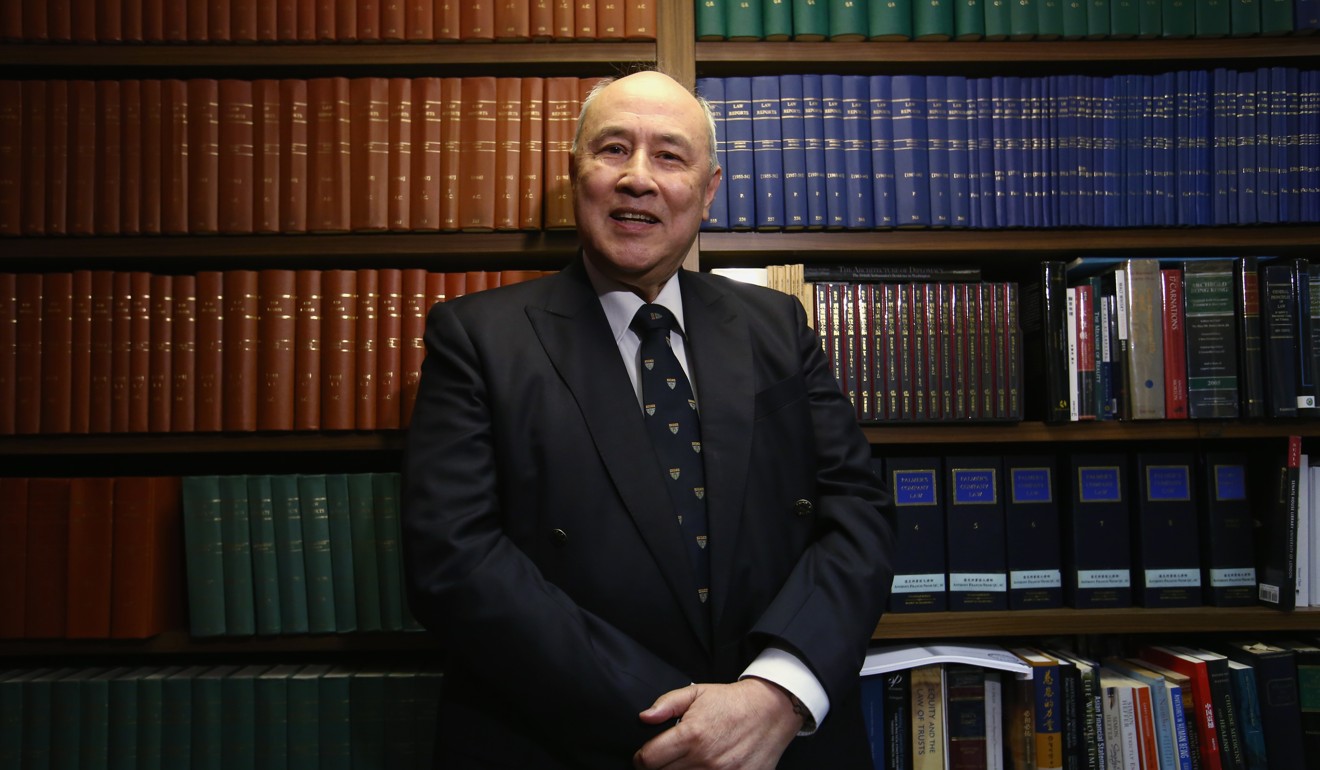
Legal heavyweight Anthony Neoh urges Beijing not to step in over court challenges to Hong Kong’s ‘co-location’ arrangement
Interpretation of Basic Law by China’s top legislative body could raise doubts about city’s legal system, new head of independent police watchdog says
The new head of Hong Kong’s independent police watchdog has warned that the country’s top legislative body should not step in to counter legal challenges to a bill that will allow mainland Chinese laws to be enforced at the city’s high-speed rail terminus.

The adviser to former premier Zhu Rongji said the design of the interpretation mechanism was for the city’s top court to decide whether the NPCSC’s involvement was needed.
“Every time the NPCSC interpreted the Basic Law, it stirred up doubts and speculation from the outside world,” Neoh said in a wide-ranging interview with the Post.
Hong Kong police watchdog to step up monitoring, new chief pledges
“I hope the NPCSC will avoid interpreting in the future, which is a common call from the city’s legal profession – only interpret when strictly necessary.”

Neoh, also a member of the Basic Law Committee before 2007, said the legal disputes over co-location could still end up in the NPCSC’s hands, but only if the Court of Final Appeal felt the need to refer to it.
“It’s already better than Beijing declaring a certain part [of the rail terminus] is not Hong Kong territory. If that’s possible, they could decide it somewhere else in Hong Kong, and where does this end?”
While he saw continuing tensions in future between Hong Kong and Beijing as inevitable, Neoh, also a former chief adviser to the China Securities Regulatory Commission, said the central government was more firm than before regarding matters related to the city’s autonomy.
Veteran barrister to lead police watchdog in bid to restore public faith
“When someone calls for an end to one-party rule [in mainland China] or for Hong Kong independence, how will Beijing feel? It will be very alert when it comes to autonomy and leave us little room to negotiate,” Neoh said.
Shortly before 1997, when Neoh chaired the Securities and Futures Commission, he was once seen as a possible candidate for Hong Kong chief executive.
He told the Post he would never have turned down such an offer if there were one. At the time, Neoh added, he discussed a range of issues with Lu Ping, Beijing’s top representative overseeing the handover – including his prediction of the impending Asian financial crisis.
Although he did not get the top job in the end, Neoh said he was “so happy” with what “God” had decided for him.
“Or else, I couldn’t have helped Zhu Rongji push for reform at the central level,” he said.
It’s my expectation that Carrie Lam will be in office for 10 years, barring anything unforeseeable
“[What I heard in Beijing was] generally she is performing her job well and she knows the latest developments in the country,” Neoh said. “It’s my expectation that she will be in office for 10 years, barring anything unforeseeable.”
Neoh would not confirm whether he was invited by Lam to be her justice minister last July.
He was appointed this month to lead the police watchdog for a term of two years.
“What I can say is, I was very sick last year after a lymphatic tumour was found. I had to undergo chemotherapy eight times. It was such a tough time but I have fully recovered now,” he revealed.
Pressed on whether he would have been the city’s justice chief otherwise, the 72-year-old veteran replied with a grin: “I could have died. Who knows? I’m too old to do anything else.”

